ISLAMABAD, Feb 22 (APP):Minister for Defence Engr. Khurram Dastgir Khan Thursday said Pakistan, under an elected government, had solved its most vexing issues and become an island of stability in the region.
“Pakistan today has become an island of stability amidst an unstable region. This should give us confidence that Pakistan is on its way to assume its rightful role in the region and in the world at large as a prosperous and peaceful nation,” he said while addressing a seminar here.
The seminar titled “Contemporary Relations between Pakistan, Iran and Saudi Arabia: Present Challenges” was organized by the Strategic Vision Institute.
The minister said Pakistan had come a long way from the dark period of terrorism and energy-shortage that the Pakistan Muslim League-Nawaz (PML-N) government inherited in 2013.
After the PML-N government assumed office in 2013, former prime minister Nawaz Sharif began a process of regional recalibration of Pakistan’s foreign and security policies, with a view to give geo-economics a weight equal to geo-security.
Nawaz Sharif espoused a vision of mutual prosperity through regional connectivity, and began a process of building up Pakistan’s relations with its immediate neighbors as well as with Central Asia.
“Pakistan’s relations with the Middle East, however, have evolved as war and strife raged across Syria, parts of Iraq, and Yemen, in addition to tensions of major GCC countries with Iran as well as tensions within the Gulf Cooperation Council,” he said.
Pakistan remains wary of being drawn into power struggles along sectarian lines as they are currently taking place in the Middle East, he said adding that Pakistan’s Middle East policy in recent years had been a balancing act between Saudi Arabia and Iran.
The minister said Pakistan maintained an ideological affinity, deep military and economic relationship as well as strong leadership ties with the Kingdom, besides building economic cooperation and counterterrorism links with Iran.
“Pakistan Armed Forces personnel have been deputed to the Kingdom for many decades on training and advisory role – under longstanding bilateral agreements and protocols. After the evolution of the Saudi-led Islamic Military effort from an alliance into a counter-terrorism coalition, Pakistan has offered cooperation in counter-terrorism training and communications,” he said.
Driven by the highest leadership of both countries, Khurram said, Pakistan and Saudi Arabia recently began a process of updating and widening their historical partnership into new areas, particularly economic and industrial cooperation.
In 2015, the government chose, with support of the Parliament, to avoid being implicated directly in the Yemen conflict.
The minister said another more recent challenge was the relationship between Qatar and GCC (Gulf Cooperation Council), particularly Saudi Arabia.
He said Pakistan was striving towards a stable neighborhood, especially for success of China-Pakistan Economic Corridor , adding that the government had pursued a strategy that balanced its geopolitical ambitions with its geo-economic interests.
“Pakistan deeply values its partnership with both Saudi Arabia and wishes to enhance its relations with Iran. We have always been forthcoming to play a mediatory role and diffuse tensions between the two countries,” he said.
He said around 1.9 million Pakistanis lived in Saudi Arabia alone, who were contributing a great foreign exchange reserves.
Going forward, the minister said, Pakistan had made progress on developing a gateway to the Chinese Belt-and-Road Initiative through the flagship CPEC Project.
He said Pakistan offered various avenues for joint economic ventures, adding that Pakistan’s strategically important Gwadar Port and Iran’s Chabahar Port could act as sister ports for accruing economic benefits for uplift of the area and providing economic opportunities to the people.



